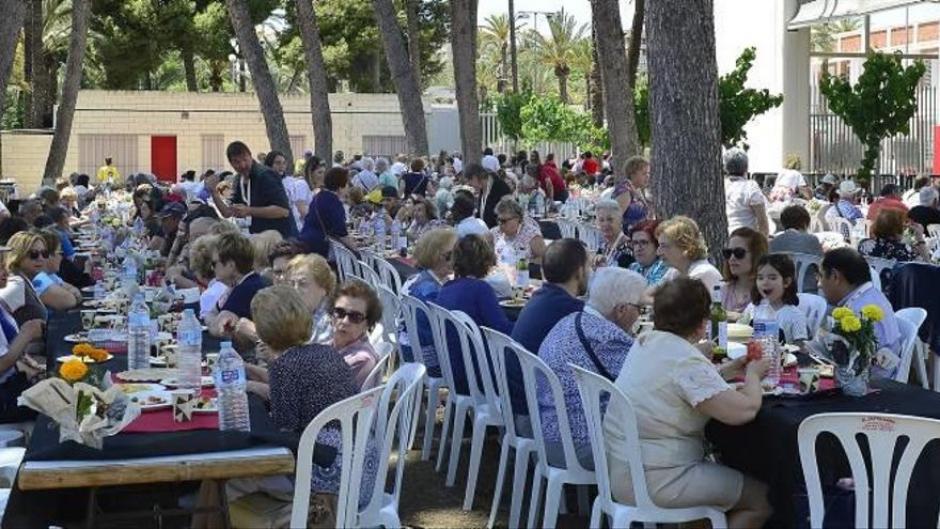
Towards a new dawn in humanity
Today, December 20, the UN has been celebrating the International Day of Human Solidarity since 2005.
According to this organization, the meaning of the day is to be able to celebrate unity in diversity, to remind governments that they must respect their commitments to international agreements; to raise awareness of the importance of solidarity; to put an end to poverty.
This organization states that "Solidarity has defined the work of the United Nations since the organization's birth. Since its creation, it has attracted the peoples of the world to promote peace, human rights, and economic and social development".
We humanists observe that the good intentions of the UN's declamation, stay in the way, in a planetary civilization whose domes sustain money as a central value and guide decision making based on individualistic, selfish criteria that have nothing to do with solidarity.
Even the United Nations has played and is playing a growing military role that entails not a few dangers. Once again the sovereignty and self-determination of peoples is being compromised through the manipulation of the concepts of peace and international solidarity.
In the humanist paradigm, solidarity and freedom are complementary categories and values. The moral principle that defines our way of appreciating solidarity relates it indivisibly to freedom. This principle states that "when you treat others as you want them to treat you, you are free".
In different cultures, the position of solidarity before others has been expressed in a similar way, and this attitude has been known since ancient times as the golden rule
Throughout history it has been said, for example: "Do not do to another what you would not like done to you" Confucius ; "May it be given to me to do to others what I would like done to me" Plato ; "What you do not want for yourself, do not do to your neighbor" Rabbi Hillel; "Man must strive to treat all creatures as he would like to be treated" states the maxim of Chakistan; "All things that you would like men to do to you, do also to them" is expressed in Christian doctrine; "Treat others as you would like to be treated" among the Sikhs. The existence of the Golden Rule was proved by Herodotus in different ancient peoples almost 2500 years ago.
At present the word solidarity in the mouth of the oppressive domes or their accomplices is an exercise in cynicism, manipulation and cruelty. The current system has put money as a central value, the rise of status on an unjust and violent social scale, justifying the methods used in the name of supposed practical solutions. The mandate of neoliberal pragmatism only allows, in the best of cases, for solidarity to reach a minimal group of people called "loved ones", the rest are strangers, competitors, clients but never human beings who deserve to be treated as we want to be treated.
This way of thinking and proceeding, although it comes from the USA for almost five decades and has become strong in Europe, has spread to all the continents of the planet and is the sensitivity and way of valuing the life of the people, which the ruling elites have in almost all countries .
This power of money, of the media, and of the ruling minority can only be opposed by the organized human base. Increasingly adapted in each society, basing its links on solidarity and freedom, values that are brotherly and indivisible in our conception of human relations and indispensable to reconstitute the social fabric
Solidarity together with compassion are the most profound and true attitudes and feelings that we human beings have to affirm ourselves in the attempt to eradicate pain and suffering in the societies in which we live.
If we travel around the world, its regions, its peoples, we will find ourselves with daily practices, where in spite of everything from the real power, it is organized to isolate, divide, compete, in spite of that, solidarity opens up. An invaluable number of groups of all kinds, of diversity of tasks, of forms of help, of reciprocity, have as a goal to put themselves in the place of the other.
When humanists speak of anti-discrimination, active non-violence, respect for diversity, choice of living conditions to which we aspire, and compassion for others, this principle of solidarity is resonating!
True solidarity generates an openness in those who practice it, it springs from simple and sincere human depth. Through it, we reveal ourselves in others. Solidarity cannot be imposed as a behavior; it is a value that offers an ideal and a model to follow that allows us to advance in the strengthening of human greatness, in the growth of our own life and the practice of social transformation .
International Coordination Team
Federation of Humanist Parties
